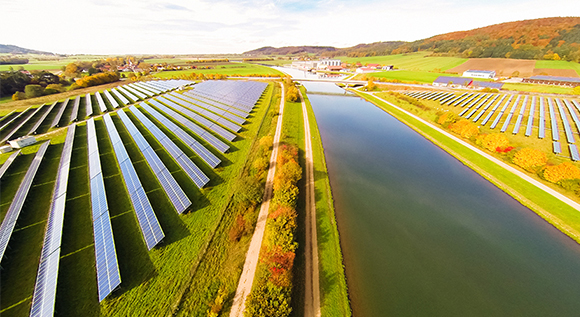Renewables see a strong increase in 2018
The share of renewables in gross electricity generation is continuing to rise. According to figures published by the working group on renewable energy statistics, it reached 38 per cent in 2018.
 © iStock.com/nullplus
© iStock.com/nullplus
The preliminary statistics on the development of renewable energy paint a positive picture. The share of renewables in total gross energy consumption grew considerably last year, rising from 15.5 per cent in 2017 to an estimated 16.6 per cent in 2018. This means that the Federal Government is coming closer to achieving its binding target of a share of renewables of 18 per cent by 2020.
This positive development is largely due to high solar yields, the continued expansion of wind energy in 2016 and 2017 and lots of wind in 2017 and 2018, both onshore and offshore. However, the number of wind farms that were installed in 2018 fell below that of previous years.
Major increase in all three sectors
The share of renewables-based heat also increased in 2018. Whilst the use of renewable energy in the heat sector stagnated in 2018, the total amount of energy used for generating heat decreased, which can be attributed to the mild weather.
The share of near-surface geothermal energy (geothermal heat) and that of ambient heat – which are used to provide energy for heat pumps – increased in 2018. And the many hours of sun last year allowed optimal use of the solar installations. However, the use of biomass – which is the most important renewable energy source for generating heat – declined. The share of renewables-based heat therefore remained the same compared with the previous year. Biofuels in the transport sector rose by around 5 per cent in 2018.
Share of renewable energy increases in the electricity, heat and transport sectors
The share of renewable energy in the electricity, heat and transport sectors increased considerably in 2018. As a result, primary energy consumption decreased in 2018, falling by 3.5 per cent compared with the previous year. However, the reduction was lower than forecasted by the Working Group on Energy Balances. Primary energy consumption is the consumption of energy that is directly contained in energy sources and has not yet been converted into electricity, heat or petrol.

